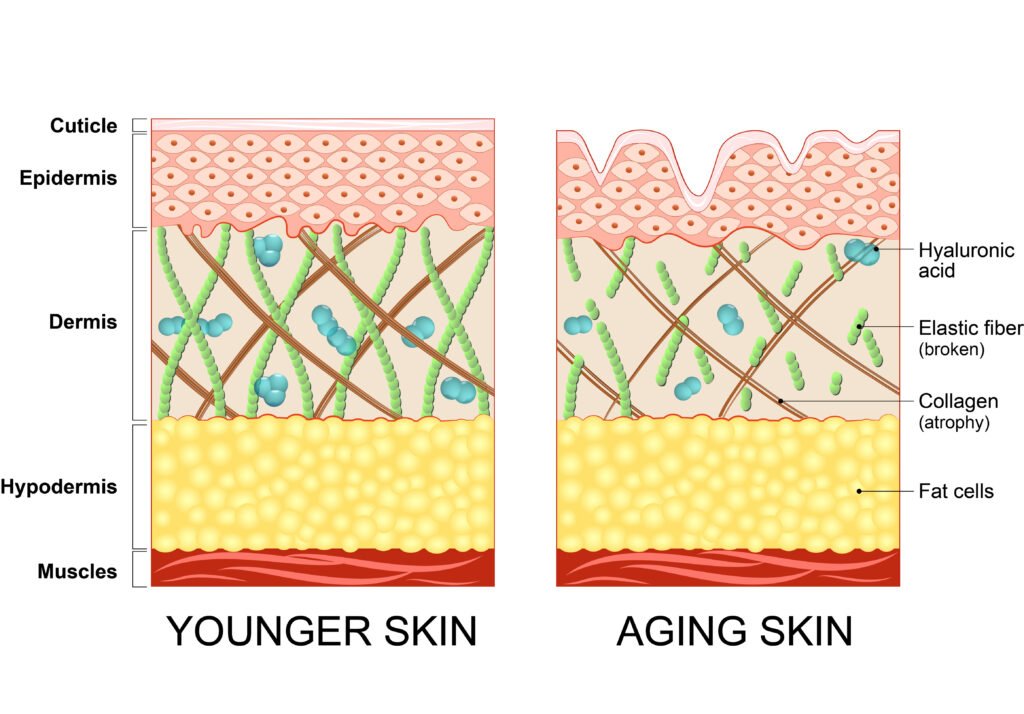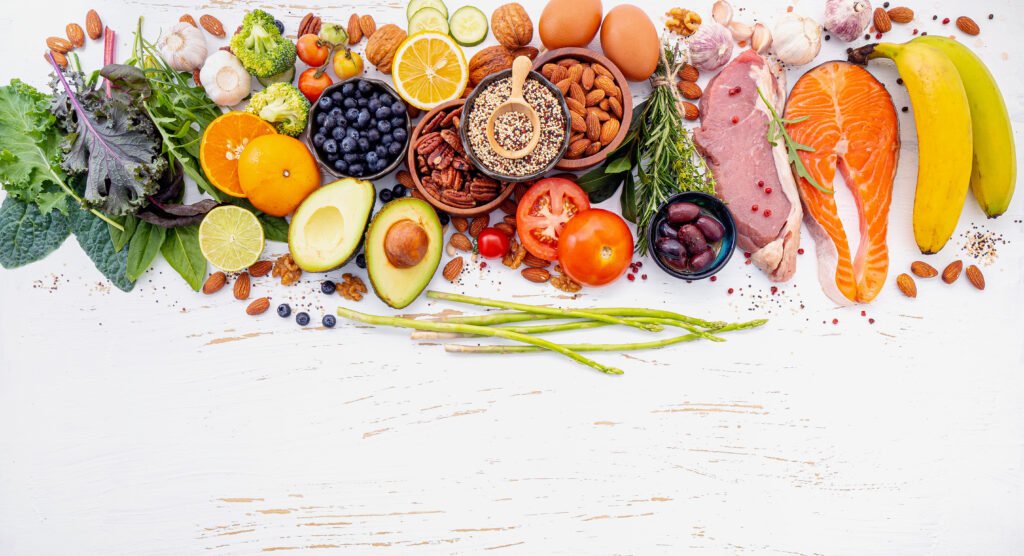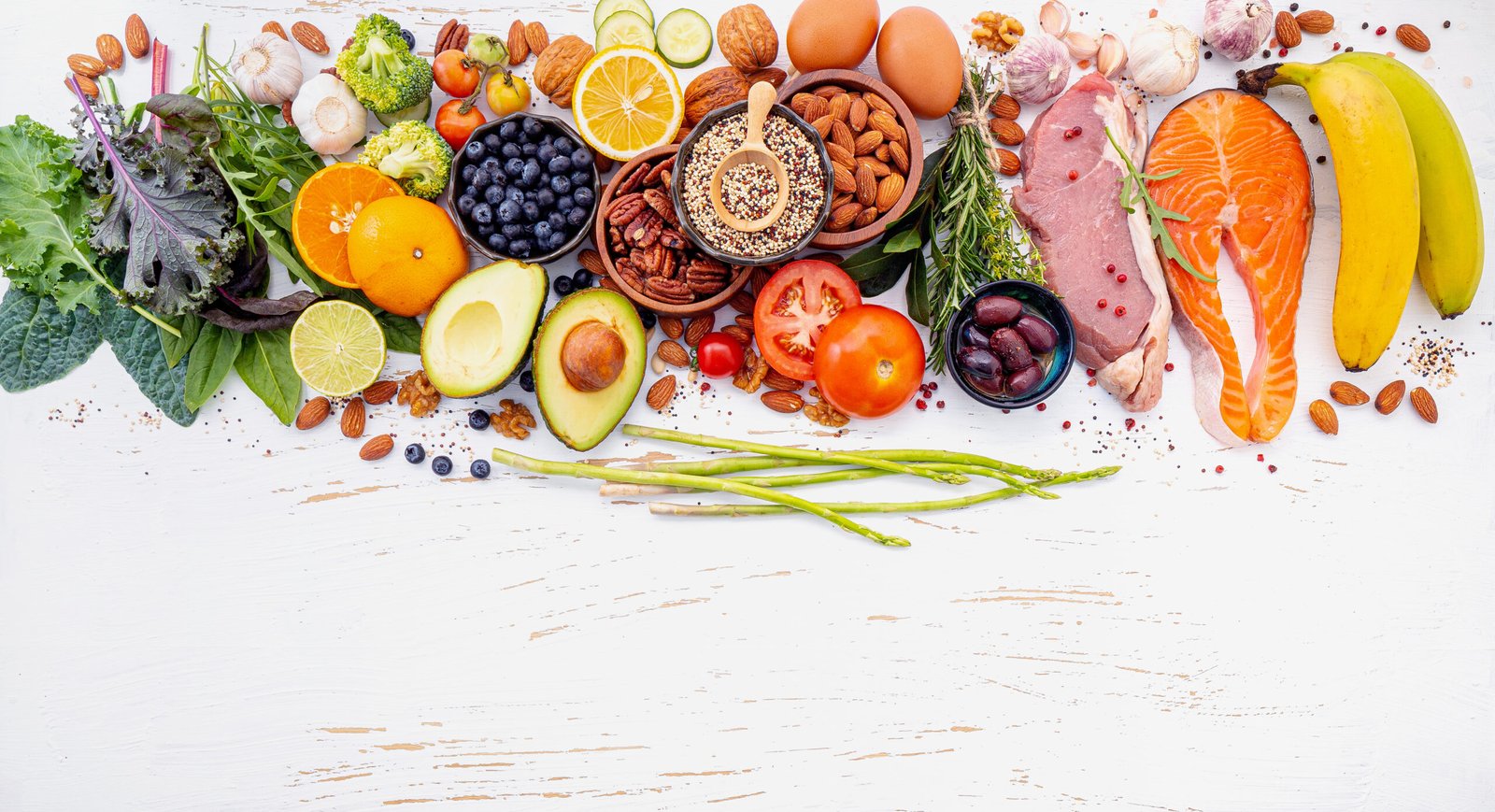What is Collagen?
Collagen is a key protein that provides structure and support to various parts of the body, including the skin, bones, hair, and tendons. For the skin, collagen functions like a scaffold, helping maintain firmness and elasticity. It forms a natural framework that supports cell adhesion, proliferation, and matrix synthesis throughout the body (H. Liu, J.C.H. Goh, in Comprehensive Biomaterials, 2011). Collagen is abundant in the dermis (the middle layer of skin), where it works alongside elastic fibers and hyaluronic acid to create firm, plump, and wrinkle-free skin.

Why Do We Lose Collagen as We Age?
As we age, our body’s collagen production naturally declines. Research shows that collagen loss begins in early adulthood, with production decreasing by 1–1.5% each year (Chae, M., et al., International Journal of Molecular Sciences, 2021). This gradual decline is why our skin becomes drier, less elastic, and more prone to wrinkles as we get older.
How Can You Effectively Supplement Collagen?
A common method for boosting collagen levels is applying skincare products containing collagen. However, this approach is largely ineffective. Collagen molecules are too large to penetrate the skin’s outer layer, meaning that topical application doesn’t reach the dermis where it’s needed (Shunatona, B., Byrdie, 2023).
Another popular method is drinking collagen supplements. But when you drink collagen, it’s broken down into amino acids by stomach enzymes, so your body doesn’t absorb collagen directly. Instead, you’re receiving fragmented amino acids. In studies, some participants reported improved skin hydration after 60-90 days of taking collagen supplements. However, these studies were often funded by collagen companies, and they didn’t run long enough to fully assess potential side effects. It’s also unclear whether the benefits come from collagen itself or from other ingredients in the supplements, such as hyaluronic acid and vitamin C.
Additionally, collagen supplements could trigger allergies in people sensitive to chicken or fish, as collagen is often derived from these sources.
The Best Way to Boost Collagen Naturally

Rather than relying on supplements, you can support collagen production through your diet. Your body synthesizes collagen using raw materials from protein and vitamin C. Eating foods rich in these nutrients—such as meat, fish, eggs, and fruits—ensures that your body has what it needs to produce collagen effectively (Collagen, The Nutrition Source, 2024).
One of the biggest enemies of collagen is UV radiation. Prolonged exposure to sunlight speeds up the breakdown of collagen, contributing to premature aging. Wearing sunscreen regularly is one of the most effective ways to protect your skin’s collagen and keep it healthy (Lim, H. S., et al., Biomedicine & Pharmacotherapy, 2022).
Conclusion
While collagen supplements are popular, the evidence supporting their effectiveness remains limited. The best way to maintain healthy collagen levels is to consume a diet rich in protein and vitamin C and to protect your skin from UV damage with sunscreen. By taking these steps, you can help your body maintain its natural collagen production and keep your skin looking youthful.
Sources:
1. H. Liu, J.C.H. Goh, in Comprehensive Biomaterials, 2011
2. Chae, M., et al., International Journal of Molecular Sciences, 2021
3. Shunatona, B., Byrdie, 2023
4. Collagen, The Nutrition Source, 2024
5. Lim, H. S., et al., Biomedicine & Pharmacotherapy, 2022
You can check the sunscreens that I used and reviewed in this post.




